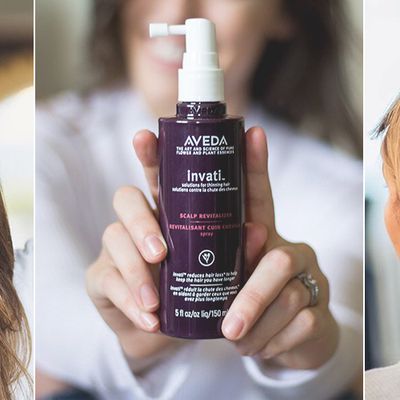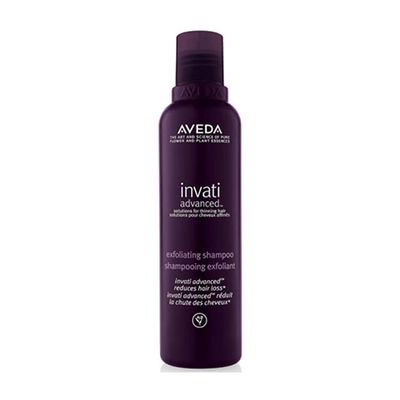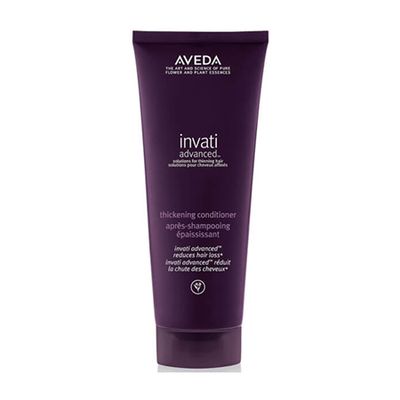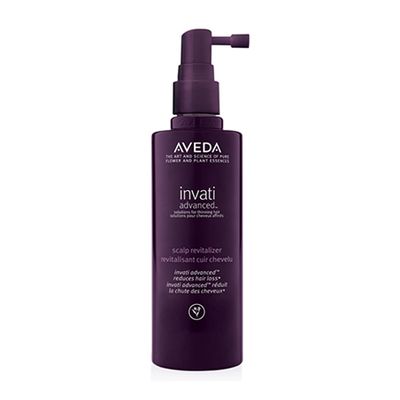
13 Things To Know About Female Hair Loss
CREATED IN PARTNERSHIP WITH AVEDA
Firstly, how is female hair loss different from male hair loss?
Thinning hair is a normal part of the aging process. Both men and women experience thinning hair as they age, however, there are several important differences. Men's hair loss is typified by a receding hairline and thinning at the crown; in general, men suffer from a greater incidence and degree of hair thinning than women. On the other hand, women’s hair thinning is typically more diffuse over the top of the scalp – women rarely go bald. The rate of hair thinning greatly increases in post-menopausal women too.
Are there different types of hair loss?
Yes. An average person loses up to 100 hairs per day. However, hair loss – also known as alopecia or baldness – is a medical term and has various types. Common types include male pattern hair loss, female pattern hair loss, alopecia areata and a thinning of the hair known as telogen effluvium. If you experience abnormal amounts of hair loss we recommend consulting a doctor.
What’s the most common cause of female hair thinning?
Around a third of women experience hair loss at some point in their lives, which is equivalent to around 40 million women. To understand how to address hair thinning and maintain thicker, healthier-looking hair, it’s imperative to understand the hair growth cycle. According to New York-based hair restoration specialist, Carlos Wesley, MD, we are born with approximately 100,000 hair follicles. These start at birth as single follicles but over time, they treble, resulting in thicker and fuller hair. As we get older, this process reverses, resulting in thinner and finer hair with a shorter growth cycle.
Is it true your hair changes when you have a baby?
It can do. When you’re pregnant, hair can appear to grow faster and thicker but it’s actually due to the fact you shed fewer hairs. While a woman loses around 100 hairs a day, a pregnant woman will only lose around 50, making the hair appear thicker over the nine months. After pregnancy, the temporarily retained hair sheds, which can be concerning, but it’s just your hair going back to the density it was before you were pregnant. Treatment isn’t usually necessary but new mums should give their hair some TLC using gentle, nourishing products that support healthy-looking hair and reduce breakage.
What lifestyle factors contribute to thinning hair?
Many factors can affect hair loss such as diet, stress and smoking, as well as external factors such as sun exposure and even colouring and straightening. Brushing your hair too vigorously can also cause breakage which can make your hair look and feel thinner – when brushing your hair always start from the ends and work towards the roots.
What about pollution – is this contributing to hair loss?
It could well be. We all know pollution can cause damage to your skin but most people don’t realise that the same goes for your scalp and your hair. Pollution can settle on the hair and scalp, causing irritation and damage that in turn leads to dry and damaged hair and an itchy scalp. Pollution can also weaken the structure of the hair and cause it to decrease in diameter and strength.
At what point does thinning hair become an issue?
In terms of excessive daily hair shedding, this usually resolves itself without treatment. However, if it continues for longer than three months or you are concerned, see a trichologist, as there is most likely an underlying factor that needs to be addressed. If you’re losing more than 100 hairs a day (it’s normal to lose anywhere between 25-100 strands a day), it could also be worth trying Aveda’s Invati range, a 98% naturally-derived range for instantly thicker hair and long-term results.
Can washing your hair too much cause it to thin out?
Yes and no. Excessive shampooing can remove a protective barrier which we all have and need on our scalp, shampooing movements are also commonly conducted quite vigorously which can lead to hair thinning. On the other hand, infrequent shampooing can lead to irritating build-up and causes the follicle to block which can lead to hair thinning.
What really works?
It’s really important to use an exfoliating shampoo to cleanse the pollution and debris from the scalp, as well as a nourishing conditioner to replenish the moisture content while protecting the hair from environmental aggressors. The Aveda Invati Advance range is clinically proven to reduce hair loss and help you keep the hair you have for longer, making it ideal for those suffering from hair loss, as well as those keen to anti-age their hair and maintain its health and condition in the long term.
How do you use it?
Start by using the Invati Advanced Exfoliating Shampoo which will gently exfoliate, cleanse and renew the scalp thanks to wintergreen-derived salicylic acid, removing the build-up that can clog pores. The botanical-inspired formula is also packed with a powerful blend of ayurvedic herbs, including ginseng and certified organic turmeric. Next, swap your usual conditioner for the Invati Advanced Thickening Conditioner – packed with naturally-derived amino acids, it’ll mimic the hair’s building blocks for instantly thicker, healthier hair. Meanwhile, massaging the Invati Advanced Scalp Revitaliser into your scalp once a day will work wonders to reduce hair loss – the formula is brimming with invigorating tangerine peel and Japanese knotweed, to penetrate deep into the surface layers, helping to support hair’s natural keratin. Using the three products in tandem can reduce hair loss by up to 53%.
Who’s it for?
The shampoo and conditioner are ideal both for those concerned with hair loss as well as those looking to maintain their hair, while the Scalp Revitaliser is more of a specialised treatment.
Finally – what are your top tips for caring for thin hair?
Keep it natural and try not to over-process your hair with heat or chemicals. Try not to overuse products that give the illusion of thicker, fuller hair, as this can lead to product build-up on the scalp, which can cause blocked hair follicles – one of the main causes of hair loss. Massage the scalp daily with an Aveda paddle brush and treat the hair once a week to keep it in good condition. Introduce healthy lifestyle choices that will reduce your stress levels such as exercise, abdominal breathing and a healthy life balance.
Shop the Invati range here; for more information visit Aveda.co.uk
Inspiration Credits: Instagram.com/Avedauk
DISCLAIMER: We endeavour to always credit the correct original source of every image we use. If you think a credit may be incorrect, please contact us at info@sheerluxe.com.


